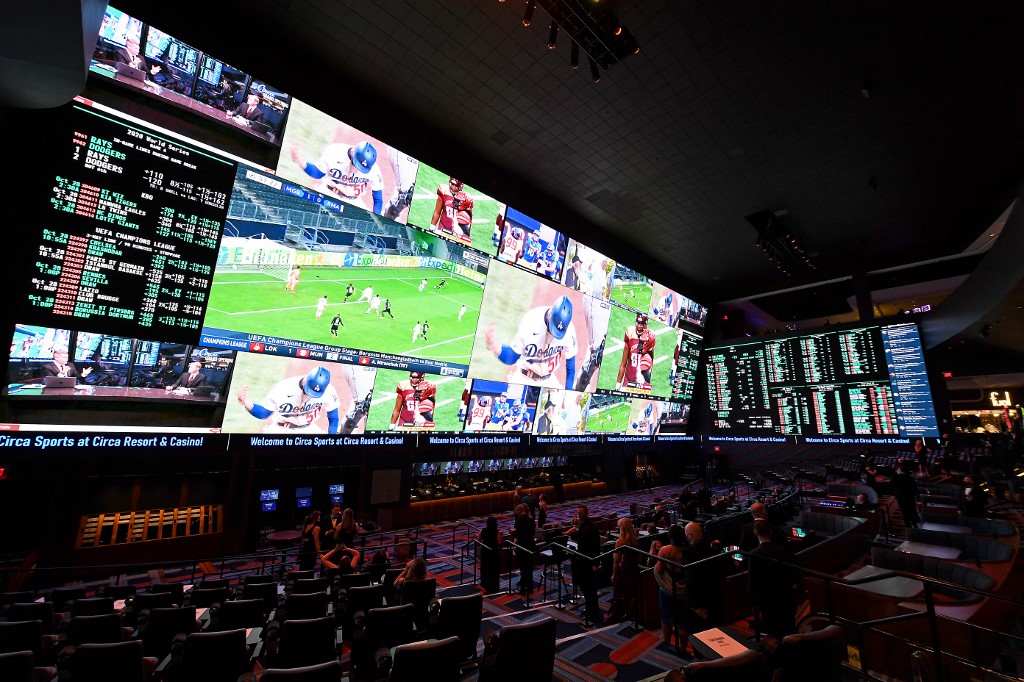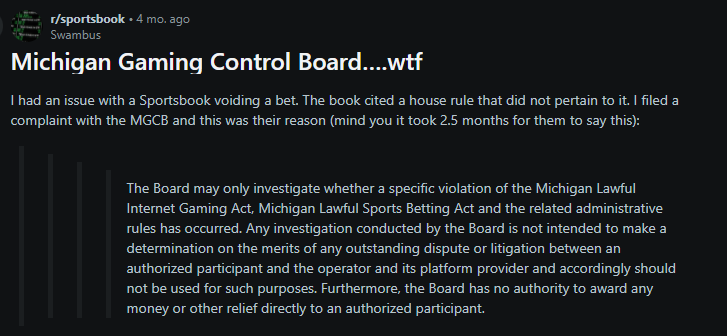Is Offshore Betting Legal? What Bettors Need to Know
-
 Bookmakers Review
Bookmakers Review
- December 11, 2024

At Bookmakers Review (BMR), our mission is to clarify one of the most common questions about offshore sports betting: is it legal? A widespread misconception exists that betting with unregulated sites is illegal for players. However, the reality is that U.S. laws, such as the Unlawful Internet Gambling Enforcement Act (UIGEA), target financial transactions involving sportsbooks, not the bettors themselves. This means that while it may be illegal for offshore sportsbooks to accept action from within U.S. borders, individual players are not violating federal law by placing bets with these sites.
The offshore sports betting industry is largely unregulated, which is why BMR works tirelessly to ensure players can identify trusted offshore sportsbooks that pay out promptly and treat their users fairly. By addressing legal misconceptions and offering reliable guidance, this guide will explain why selecting a trusted sportsbook is essential and how BMR can assist players in resolving issues.
BMR’s Role as a Sportsbook Watchdog
The offshore sportsbook industry operates outside of direct regulatory oversight, unlike state-regulated betting sites in the United States. Without a centralized authority to protect players’ rights, offshore bettors are left vulnerable to unscrupulous practices by untrustworthy operators.
Historically, Sportsbook Review.com (SBR) was known as the offshore sportsbook industry’s leading watchdog, but in late 2020, their business model shifted to reviewing regulated sites. This change left a void in the industry for players seeking advocacy and reliable guidance.
Today, BMR fills that gap by providing bettors with an independent resource for identifying trusted offshore sportsbooks and resolving disputes. Players can share their feedback about their experiences with offshore sportsbooks, including filing complaints through BMR’s sportsbook complaint mediation service.
Bookmakers Review has helped bettors recover over $1 million in disputed winnings.
This service is entirely free, helping bettors recover funds, address withdrawal problems, resolve account suspensions and settle disputes over bet outcomes. By offering this support, BMR ensures players have a voice and a way to navigate the often unregulated offshore sports betting space.
The Online Sportsbook Rating Guide
To help players identify trusted offshore sportsbooks, BMR offers a comprehensive sportsbook rating guide that evaluates various aspects of a sportsbook’s operations, including payment speed, customer service, transparency and overall reliability. Our ratings range from 1 to 10, with highly-rated sportsbooks (9 and above) representing the gold standard of the industry.
Sportsbooks rated 9 or higher have a long history of fair treatment, prompt payouts and transparent operations. They communicate openly with our team, address player complaints and work to maintain a positive reputation in the industry. These sportsbooks are trusted by bettors worldwide, and even regulated sportsbooks often look to them for market movements and line setting.
On the other hand, sportsbooks rated 1-2 are placed on our betting site blacklist and should be avoided at all costs. These sites have a track record of unethical behavior, including slow payouts, confiscation of winnings, poor customer service and misleading promotions.
BMR’s goal is to make sure players are fully informed about the risks of betting with such operators, and our rating system provides a clear, unbiased assessment of each offshore book’s reliability.
Understanding the Differences: Regulated vs. Offshore Books
There is often a misconception that local, legal sportsbooks are inherently better or safer simply because they are licensed by a state or government body. While it is true that regulated sportsbooks must adhere to certain legal standards, the actual level of consumer protection provided by these regulators can vary significantly. Many regulators are bureaucratic, slow to respond and lack the industry experience needed to understand the nuances of betting disputes.
For example, consider a case reported on Reddit, where a bettor filed a complaint with the Michigan Gaming Control Board (MGCB) regarding a voided bet. The legal operator had cited a house rule that did not apply to the situation, and after a 2.5-month wait, the MGCB ultimately ruled against the player. The MGCB stated that their investigation was limited to determining if there was a specific violation of Michigan law, and they had no authority to award any money or resolve disputes beyond this scope.
Inability to help with those disputes is one of the largest drawbacks of the legal sports betting industry in the United States.

In contrast, offshore betting sites often provide a more personalized experience, as they are not bound by rigid state regulations. They compete for player loyalty through better bonuses, higher limits and more diverse betting options. However, the lack of regulation also means that players are at the mercy of the sportsbook’s internal policies if a dispute arises. This is why choosing a trusted offshore site, vetted by BMR, is critical to ensuring a positive betting experience.
The Grass Isn’t Always Greener
Many players have reported issues with U.S. betting sites, including voided bets, unfair rule enforcement and a lack of meaningful recourse when disputes arise.
For example, the Michigan Gaming Control Board case mentioned earlier demonstrates the limitations of state regulatory bodies. The Board explicitly stated that it could not award money or resolve disputes beyond determining if a law was violated. This narrow scope of authority means that players are often left without the support they need when dealing with complex betting issues at these legal sportsbooks.
And while gaming commissions may get it right sometimes, bettors still experience frustration dealing with customer support at state-licensed platforms. These new legal options have staff that is not as experienced with the industry as those working in the offshore market, as another user detailed on Reddit:
“I had a very unhelpful customer support person on FanDuel so I had to go to the gaming commission, a few days later got an email from FanDuel saying the result was rectified. Messaging with the customer support guy it sounded like he never placed a bet in his life.”
Offshore betting sites have years of experience catering to players globally, making them better equipped to handle online betting issues more effectively.
Is offshore sports betting illegal?
In a word, no. Offshore sports betting is not illegal for players in the United States. This widespread misconception stems from a lack of clarity around federal laws that govern online gambling. Below, we break down the most significant laws impacting offshore operators:
The Wire Act (1961): Originally aimed at combating organized crime, the Wire Act prohibits the use of wire communication facilities for transmitting bets or gambling information across state lines. However, the law targets operators, not individual bettors. It was enacted long before the internet era and has been interpreted in various ways over the years, but it does not criminalize betting with offshore sites for players.
The Unlawful Internet Gambling Enforcement Act (UIGEA, 2006): UIGEA specifically focuses on financial institutions and their role in processing transactions related to online gambling. It requires banks and payment processors to block payments to unregulated sportsbooks. However, it does not make it illegal for players to place bets; the law’s intent is to disrupt operators rather than target individual bettors.
The Professional and Amateur Sports Protection Act (PASPA, 1992): PASPA prohibited states from legalizing sports betting, effectively creating a monopoly for offshore sports betting sites for many years. However, the U.S. Supreme Court struck down PASPA in 2018, paving the way for state-licensed sites and retail sportsbooks to open. Importantly, PASPA’s repeal did not alter the legality of placing bets with offshore sites.
Many bettors mistakenly believe that wagering on offshore sportsbooks is illegal under federal law. In reality, the laws primarily target sportsbooks and financial intermediaries, not players. It is important to note that while offshore sportsbooks operate outside U.S. jurisdiction, bettors living in both regulated and unregulated states can legally place bets with these sites without fear of legal recourse.
Whether you live in a state where legal books exist or you have to rely on offshore sports betting sites, the act of placing a bet online is not illegal. American players have the freedom to choose between state-licensed sportsbooks and trusted international sports betting sites.
The key is to select a reliable platform, such as those vetted by an objective, third-party resource, to stay safe and get the most out of your online wagering.
Why Not All Betting Sites Are Trustworthy
The reality is that not all sportsbooks are created equal. Some operators have a history of predatory practices, such as confiscating winnings under dubious pretenses, misleading players with vague terms and conditions, or simply refusing to pay out. Below, we discuss some of the most common issues sports fans face when dealing with untrustworthy sportsbooks and why it is essential to choose a highly-rated site.
- Slow Payouts: One of the most common complaints against low-rated overseas betting sites is slow payouts. Players often report waiting weeks or even months to receive their gambling winnings, with little to no communication from the sportsbook. This can be incredibly frustrating, especially when dealing with significant sums of money.
- Confiscation of Winnings: Some offshore betting sites will confiscate winnings under the guise of “bonus abuse” or “syndicate betting.” In many cases, these claims are unfounded and the sportsbook operator is simply looking for an excuse to avoid paying out a large win.
- Misleading Branding: Unscrupulous offshore betting sites sometimes use misleading branding to attract players. For example, 88Sports was designed to look like the well-known brand 888, in an attempt to deceive players into thinking they were betting with a reputable online sports betting site. This type of deception is common among low-rated operators, and it highlights the importance of doing your research before signing up.
Sportsbook Case Studies: How BMR Helps Sports Bettors
BMR has successfully resolved numerous sportsbook complaints between players and sportsbooks, helping bettors recover funds that would have otherwise been lost. Below are some notable examples of our intervention:
- $80,000 Parlay Payout: A player contacted BMR after a sportsbook refused to pay out an $80,000 open parlay win, citing a misconfigured house limit. The sportsbook had intended to cap payouts on such wagers at $50,000, but their software allowed the bet to go through. After BMR’s intervention, the sportsbook honored the full payout.
- Sportsbook.com Correlated Parlay Confiscations: Sportsbook.com allowed players to place correlated parlays on college football, only to retroactively cancel the bets and confiscate over $100,000 from a player named RickySteve. This led to the sportsbook being downgraded in our ratings. The principle of “you book the bet, you pay the bet” is a standard in the industry, and gambling sites that fail to uphold this standard are held accountable by BMR.
- SBG Global “Syndicated Wagers”: A sports betting radio host shared picks that listeners bet on, prompting SBG Global to close their accounts and confiscate winnings, citing syndicate betting. This occurs when bettors collaborate to bypass limits, but these players were merely following public advice. With a rating of 2, SBG should be avoided.
- Topbet Slow-Pays: Topbet has long been known for slow-paying players, with numerous complaints of delayed withdrawals. BMR’s ongoing monitoring of Topbet has helped many players receive their funds, but the sportsbook remains on our low-rated list due to its history of payment issues.
In summary, BMR provides a level of advocacy that can be lackluster in the regulated space, and is the offshore industry’s leading player advocate. Our team understands the intricacies of sports betting and is committed to ensuring that players are treated fairly. By choosing a trusted offshore site recommended by BMR, players can enjoy better odds, higher limits and more personalized customer service, while also having access to our dispute resolution services if something goes wrong.











